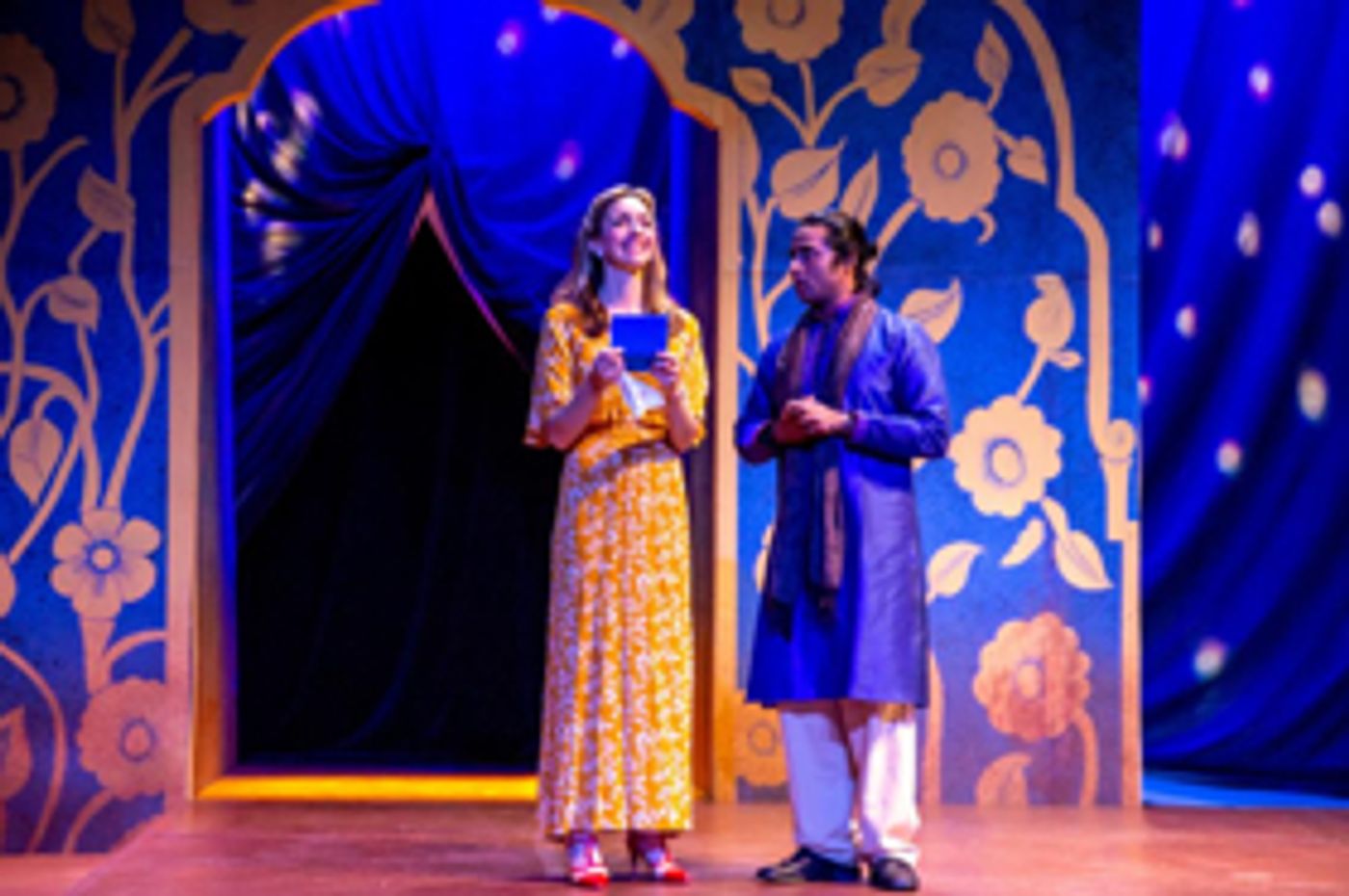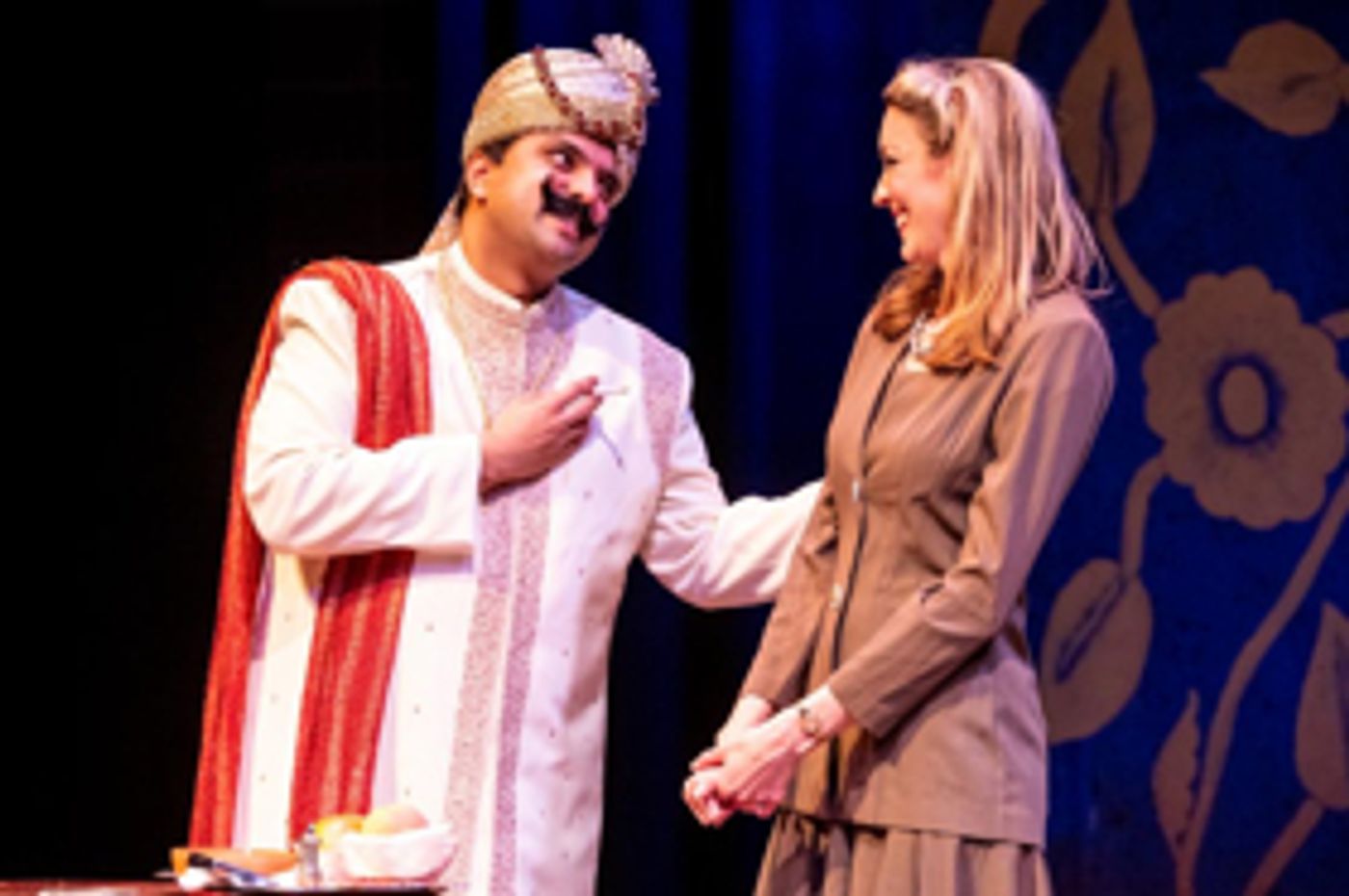Review: Tom Stoppard's INDIAN INK Shares the Humanity Behind British Imperialism at The Rollins Theatre in Austin, Tx.

Tom Stoppard is regarded as one of the greatest living playwrights of our day. His time spent in India in the 1940's as a boy, no doubt influenced the author's point of view in writing INDIAN INK. By modern terms, Stoppard's writing would be described as a slow burn, with a style gradually revealing plot and character as the play progresses. In INDIAN INK, the scenes travel long distances in both space and time, to reveal the heart of Flora Crewe played by Jill Blackwood. Examining the imperial British rule in early 20th century India - the clash of cultures between India and the British, display both the casualties and inspiration of such a combination. At the heart of our story Flora leaves England for a warmer climate amid advice from her doctor for her failing health. The story jumps back and forth between Flora navigating India in the early 1900's to more modern times detailing a biographer and her sister investigating the aftermath of her fascinating life. The story gently exposes itself as a subtle tale of love in many capacities. Love between sisters, scholarly love and the forbidden budding relationship between Flora and her portrait artist Nirad Das (played by Tamil Periasamy). As described of Flora throughout the show, her many affairs were fleeting, which made the building of her love for Nirad sweet, leaving the audience  wanting more.
wanting more.
Austin Shakespeare always manages to produce shows that are thought-provoking with high production value. INDIAN INK proved to be another success. The creative direction displayed by Ann Ciccolella offered an easy platform for the audience to enter Stoppard's play. Demonstrating the distance between scenes seamlessly, allowed for the human connections to unfold as the play progressed. Flora's sister Eleanor Swan, played by Babs George, displayed the remembrance of Flora's spirit beautifully while she relayed key information to Flora enthusiast Eldon Pike, played by Colum Parke Morgan. Morgan's excitement in the hunt for information about Flora's life, moved the audience to excitement to learn more as well. With secrets not yet discovered in both time periods, the reveling in hidden knowledge is the slow burn taking affect. What begins formally as a relationship being painter and painted, soon we see the barriers break down between Flora and Nirad. With friendly flirting within India's literally hot backdrop, Jill Blackwood and Tamil Periasamy navigate the romantic taboo of the time with care. With love described as "blueish-black" going against the more modern American red, the introduction of an older view from India takes center stage. Challenging the influence British rule had in the region, the audience in confronted with the clash of culture and the casualties India endured thereafter.
Clocking in at about two hours and forty-five minutes with an intermission, INDIAN INK sails through it's time onstage adding the satisfaction only great storytelling provides. As Flora is a true woman beyond her time, she encourages a culture of love and independence much like women we look up to today. Drawing the comparisons of the show's clear love of Indian culture to the impactful reverberations of British rule we may feel today, INDIAN INK examines a tough subject through a story about love and humanity. Learning the positions of these characters may alter your point of view - after all, the hottest stars in our sky burn blue, not red as you might have thought.
INDIAN INK
by Tom Stoppard
Austin Shakespeare
ROLLINS THEATRE
Long Center
701 Riverside at South First,
Austin, TX, 78704
February 16 - March 3, 2019
Wednesdays - Saturdays at 7:30 pm
Sundays at 3 pm
For Tickets:
Photo Credit: Austin Shakespeare
Reader Reviews
Videos

